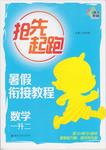题目内容
E
It is true that good writers rewrite and rewrite and then rewrite some more .But in order to work up the desire to rewrite, it is important to learn to like what you write at the early stage.
I am surprised at the number of famous writers I know who say that they so dislike reading their own writing later that they even hate to look over the publishers’ opinions .One reason we may dislike reading our own work is that we’re often disappointed that the rich ideas in our minds seem very thin and plain when first written down .Jerry Fodor and Steven Pinker suggest that this fact may be a result of how our minds work..
Different from popular belief ,we do not usually think in the works and sentences of ordinary language but in symbols for ideas (known as “mentalese”), and writing our ideas down is an act of translation from that symbolic language .But while mentalese contains our thoughts in the form of a complex tapestry (织锦),writing can only be composed one thread at a time .Therefore it should not be surprising that our first attempt at expressing ideas should look so simple .It is only by repeatedly rewriting that we produce new threads and connect them to get closer to the ideas formed in our minds.
When people write as if some strict critics (批评家) are looking over their shoulder, they are so worried about what this critic might say that they get stuck before they even start. Peter Elbow makes an excellent suggestion to deal with this problem. When writing we should have two different minds. At the first stage, we should see every idea, as well as the words we use to express it, as wonderful and worth putting down. It is only during rewrites that we should examine what we excitedly wrote in the first stage and check for weaknesses.
68. What do we learn from the text about those famous writers?
A. They often regret writing poor works
B. Some of them write surprisingly much.
C. Many of them hate reading their own works
D. They are happy to review the publishers’ opinions.
69. What do people generally believe about the way human minds work?
A. People think in words and sentences.
B. Human ideas are translated into symbols.
C. People think by connecting threads of ideas.
D. Human thoughts are expressed through pictures.
70. What can we conclude from the text?
A. Most people believe we think in symbols.
B. Loving our own writing is scientifically reasonable.
C. The writers and critics can never reach an agreement.
D. Thinking and writing are different stages of mind at work.
68---70 CAD
解析

 数学奥赛暑假天天练南京大学出版社系列答案
数学奥赛暑假天天练南京大学出版社系列答案 南大教辅抢先起跑暑假衔接教程南京大学出版社系列答案
南大教辅抢先起跑暑假衔接教程南京大学出版社系列答案